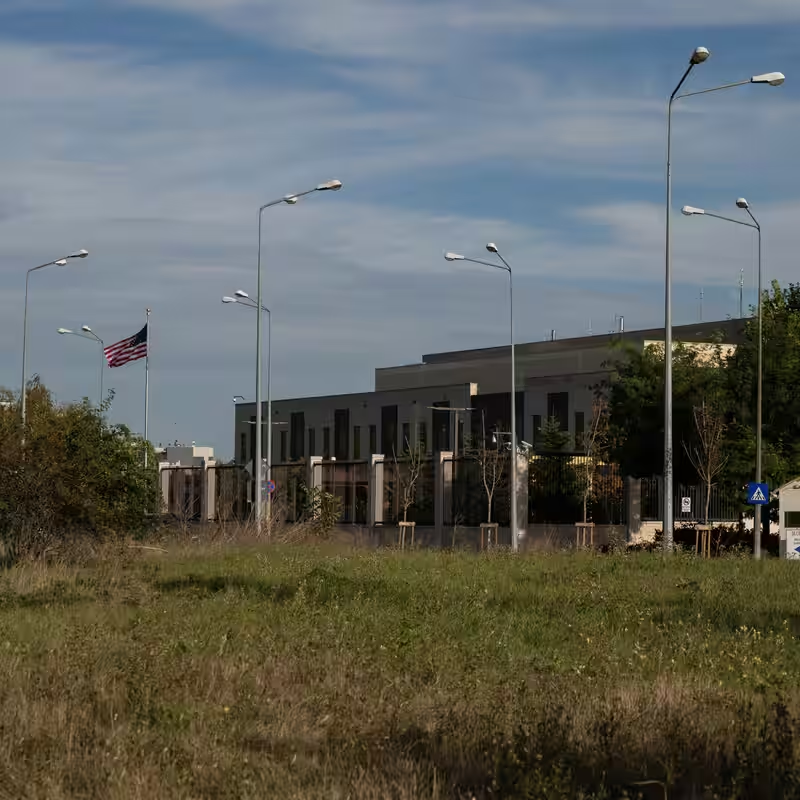Table of Contents
- The Embassy Land Proposal
- Ties to the Vice President’s Office
- An ‘Ethical Quagmire’ Acknowledged
- Part of a Broader Playbook?
- Legal Gray Zones and Diplomatic Risks
- Sources
The Embassy Land Proposal
In a previously unreported chapter of Hunter Biden’s international business ventures, new details reveal that he pursued a high-stakes real estate deal involving the land surrounding the U.S. Embassy in Bucharest, Romania—a transaction that could have given a Chinese-backed consortium influence over a strategically sensitive U.S. diplomatic asset.
According to documents and four sources familiar with the matter, the proposed deal emerged from relationships Hunter Biden cultivated while his father, Joe Biden, served as vice president. Though the transaction never closed, its very existence has raised fresh questions about conflicts of interest, foreign lobbying, and the blurred lines between private profit and public service.
Ties to the Vice President’s Office
Hunter Biden’s Romanian business network began forming during the Obama-Biden administration. While Joe Biden was vice president, his son developed connections with local power brokers and foreign investors—relationships that later evolved into formal business proposals.
By the time the embassy land deal took shape—after Joe Biden left office—the younger Biden was acting as both an advisor and potential beneficiary, wearing multiple hats that created what one associate described as “a textbook conflict of interest.”
An ‘Ethical Quagmire’ Acknowledged
Perhaps most striking is that Hunter Biden himself recognized the ethical peril. In private conversations with a close associate, he reportedly admitted the arrangement was an “ethical quagmire,” according to people briefed on the discussions.
The deal involved a group that included a Chinese company with opaque ownership. While it’s unclear whether the Chinese entity would have directly owned the embassy-adjacent land, the possibility alone alarmed some of Biden’s own partners—particularly given the site’s proximity to a key U.S. diplomatic mission in Eastern Europe.
Part of a Broader Playbook?
Experts on foreign influence say the Romania episode fits a familiar pattern: politically connected Americans—often relatives of sitting or former presidents—are courted by deep-pocketed foreign interests seeking access, legitimacy, or leverage in Washington.
“This isn’t unique to the Bidens,” said Dr. Elena Markov, a fellow at the Center for Strategic and International Studies. “We’ve seen it with the Trump sons in Dubai, the Carter family in Africa, and now here. Foreign actors know that proximity to power has market value.”
What makes the Romania case unusual, however, is the direct link to U.S. national security infrastructure. “You don’t just sell land near an embassy like it’s a shopping mall,” Markov added. “That ground is symbolic—and strategic.”
Legal Gray Zones and Diplomatic Risks
Federal prosecutors have previously suggested Hunter Biden’s activities in Romania could have violated the Foreign Agents Registration Act (FARA), though no charges related to this specific deal have been filed.
Diplomatically, the episode complicated U.S.-Romanian relations at a time when NATO’s eastern flank was already under strain from Russian aggression. Romanian officials, while not publicly commenting, expressed private concern about foreign entities gaining footholds near sensitive Western installations.
One former partner in the deal told investigators he actively worked to block Chinese involvement, fearing reputational and legal fallout. Another partner later denied the Chinese stake was ever serious—highlighting the murky, often contradictory nature of such offshore ventures.
Regardless of intent, the episode underscores a systemic vulnerability: the ease with which private business can intersect with national interests when family members of top officials operate in unregulated global markets.




